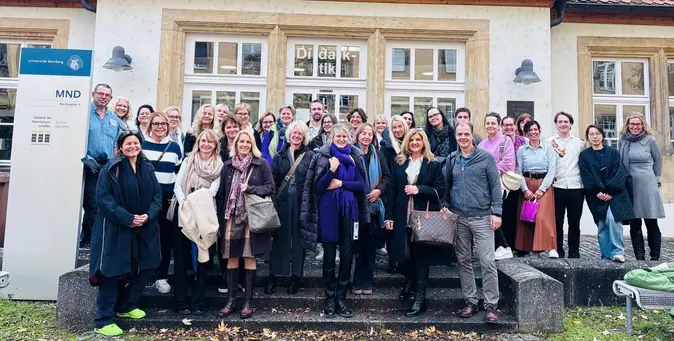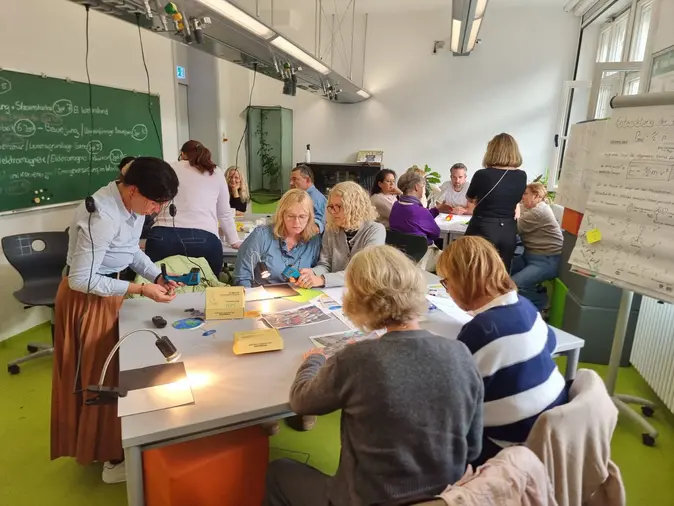City4Future and Solitary-bee Project presented in workshops
Am 22. Oktober 2025 veranstaltete die Professur für Didaktik der Naturwissenschaften der Universität Bamberg praxisorientierte Workshop. Im Mittelpunkt standen die beiden Bildungsprojekte City4Future und das DiKuLe-Nisthilfenprojekt, die zeigen, wie Nachhaltigkeit und Klimabildung fächerübergreifend in den Unterricht integriert werden können. Rund 28 SchulleiterInnen von Grund- und weiterführenden Schulen sowie SchulrätInnen aus dem Landkreis Dachau nahmen teil und diskutierten engagiert über kompetenzorientierten Unterricht und nachhaltige Lernkonzepte.
The Department of Science Education (Didaktik der Naturwissenschaften) at the University of Bamberg held a professional training workshop titled “Schulleiter-BNE-Projekte” on the afternoon of October 22, 2025. The event focused on competence-oriented teaching and brought together 28 principals from primary and secondary schools in the Dachau district. The program highlighted two exemplary sustainability-oriented teaching projects: “Close Encounters with Solitary Bees” and “City4Future”.
In the “Solitary-bee Project” session, the team from Didaktik der Naturwissenschaften used interactive presentations and a digital learning application to guide participants in exploring the ecological importance of wild bees, their nesting behavior, and their critical role in pollination. Developed by the University of Bamberg team, the project integrates a digital identification application with a visual nesting model, allowing students to directly observe the bee life cycle and develop ecological observation and inquiry-based learning skills.
The “City4Future” project is a collaborative interdisciplinary initiative focusing on climate change education. As Originating from the German educational support organization “Wissensfabrik”, the team introduced that the project currently includes five modular teaching units covering topics such as energy transformation, wind power utilization, carbon cycles, and sustainable urban design. Each module provides a comprehensive teaching plan and experimental materials designed to foster the development of new core competencies in science education.
Throughout the training, participating principals engaged enthusiastically in a variety of hands-on experiments and group activities with the help of the team. The event showcased the University of Bamberg’s innovative practices in science and sustainability education and offered valuable models for schools aiming to implement competence-oriented teaching.


